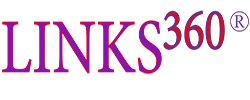Purposeful Wisdom in Action
Standing on the Shoulders of Aristotle
In the constantly changing environment of modern organisations, defining a clear purpose, mission, vision, and values is essential for fostering direction, coherence, and alignment among stakeholders. Drawing from Aristotle’s philosophical concepts of teleology [Higher Purpose], Phronesis {Intelligence to Wisdom], and Praxis [Theory to Practice], we can provide invaluable guidance in shaping these foundational aspects of an organisation and the essentials for developing leaders.
Leading for a Higher Purpose
Leaders often use teleology to consider the organisation’s ultimate purpose or end goal, although they are unlikely to call it teleology, vis-à-vis, strategic management. Common features include organisational change directed toward a goal or final state through the iteration of goal formation, implementation, evaluation, and modification. This teleological approach could involve examining the impact on society, ensuring customer satisfaction, or making broader contributions to the community or industry. By grounding the organisation’s purpose in a teleological (purposeful) framework, leaders can inspire stakeholders and make strategic decisions that align with meaningful objectives.
In the context of organisational purpose and values, Phronesis is a philosophy that encourages leaders to consider the ethical implications of their decisions and actions. It prompts them to prioritise values such as integrity, fairness, and sustainability, essential for long-term success and stakeholder trust. By integrating Phronesis into the organisational culture, leaders can cultivate a sense of ethical responsibility and wise decision-making at all levels.
Praxis highlights the significance of translating abstract ideas into practical actions and behaviours for leaders. This transformation involves creating an inspiring values-based vision and mission and ensuring daily operations and practices align with these values. Through consistent introspection and adaptation, organisations can ensure that their purpose and values remain relevant and effective in an ever-evolving environment.
Reimagining, Rethinking and Reinventing
Integrating Teleology, Phronesis, and Praxis is like building a bridge that connects different levels of understanding to varying levels of learning while ensuring that knowledge and actions are shared effectively. To reimagine leadership, we must first look back and understand that leadership is a complex concept. We must align leadership challenges with our capacity for leadership and draw on appropriate leadership styles that suit the situation. Finally, reinventing leadership does not mean reinventing the wheel but instead requires a combination of foresight, systems leadership, relationship building, and an understanding of the dynamics of leadership influence. In my upcoming series of blog posts, I will delve deeper into these different stages and explore them in more detail.
I focus on leadership to achieve a higher purpose. I draw inspiration from Aristotle’s teachings to suggest a modern and integrated leadership style suitable for the challenges we face in the third decade of this millennium.
An integrated leadership approach that leads from a higher purpose should provide a robust framework for shaping organisational purpose, mission, vision, and values. Leaders can cultivate a culture that inspires engagement, innovation, and resilience by grounding the organisation’s aspirations in a clear purpose, fostering ethical wisdom in decision-making, and translating ideals into action. In doing so, they pave the way for sustainable growth and meaningful impact in pursuing organisational excellence. Reimagination and reinvention rely strongly on transformational leadership in grounding the Higher Purpose in Delivery through informed and evidence-based practice,
This article presents three major building blocks for Transformational Leadership and Reform. The aim is to guide leaders in building purposeful wisdom and informing them of practical actions. This starts with the steps to take ‘Knowledge’ along the road to ‘Wisdom’. In subsequent articles, I will draw on a process of aligning ‘Purposefulness’ (Higher and Foundational) to Practice and ultimate Public Value as the direction of a leader’s journey. Implicit within all these discussions is the need to embed Continuous Learning with the Culture and Wisdom of the organisation as the present destination[/vc_column_text][/vc_column][/vc_row]
Understanding Wisdom
In keeping with the theme of this post, we will start with the classic Greek thinkers concerning the meaning of wisdom, referring again to Aristotle and his teacher, Socrates.
The relationship between Socrates and Aristotle concerning wisdom can be understood through their philosophical perspectives and historical context.
As Aristotle’s teacher, Socrates played a significant role in shaping his philosophical outlook. Socrates was known for his method of questioning, which aimed to stimulate critical thinking and self-examination in his listeners. He famously claimed that he knew nothing except his ignorance, a sentiment he expressed in his famous statement, “I know that I know nothing.” Socrates believed that wisdom lies in recognising one’s ignorance and constantly seeking knowledge and understanding through dialogue and inquiry.
Our key learning point is that we can never achieve absolute wisdom; it is always relative to our current leadership situation. [continuous learning].
On the other hand, Aristotle was one of Socrates’ most famous pupils and later became a renowned philosopher in his own right. While Aristotle greatly respected his teacher, he diverged from some of Socrates’ ideas, particularly concerning the nature of knowledge and wisdom. This is an important extension of thought in support of modern-day leadership.
Aristotle’s conception of wisdom, as outlined in his Nicomachean Ethics, differs somewhat from Socrates’. For Aristotle, wisdom (sophia) is one of the highest virtues. It involves theoretical knowledge, practical wisdom (Phronesis), and moral insight. Unlike Socrates, who emphasised self-awareness and the recognition of ignorance, Aristotle believed that wisdom could be attained through the systematic study of the world and the cultivation of practical virtues.
Their approaches differed, while Socrates and Aristotle valued wisdom highly. Socrates emphasised self-awareness and the recognition of one’s ignorance. At the same time, Aristotle focused on the systematic study of the world and the cultivation of practical virtues as the path to wisdom.
Let us now consider Aristotle’s thinking and apply it to modern-day leadership. Aristotle’s conception of wisdom, encompassing theoretical knowledge, practical wisdom (Phronesis), and moral insight, holds relevance for modern-day leadership in several ways:
Situational Awareness
Modern leaders can benefit from Aristotle’s emphasis on a holistic approach to wisdom in supporting a comprehensive understanding of the leadership challenge. This is stage 1 of my illustrative cycle, shown in Figure 1.

Effective leadership requires theoretical knowledge, the ability to apply that knowledge practically, and morally sound decisions. Leaders with a well-rounded understanding of various situations are better equipped to navigate complex challenges and lead their organisations toward success.
We now turn to practical application. Aristotle’s concept of practical wisdom (Phronesis) underscores the importance of practical judgment and decision-making in leadership. Modern leaders must be able to assess situations, consider various options, and make informed choices that align with their organisation’s values and goals. Practical wisdom enables leaders to adapt to changing circumstances, solve problems effectively, and inspire team confidence.
Aristotle’s emphasis on moral insight highlights the significance of ethical leadership. In today’s complex and interconnected world, ethical considerations are crucial for building trust, fostering a positive organisational culture, and maintaining long-term sustainability. Leaders who prioritise moral integrity and ethical conduct demonstrate authenticity and inspire loyalty among their followers.
Finally, Aristotle’s belief in the systematic study of the world resonates with the importance of continuous learning and growth for leaders. Leaders must stay curious, open-minded, and adaptable to new ideas and perspectives in a rapidly evolving and dynamic business environment. Leaders can enhance their effectiveness and stay ahead in an ever-changing landscapeby cultivating practical virtues and actively seeking knowledge.
Aristotle’s conception of wisdom offers valuable insights for modern-day leadership. It emphasises the importance of comprehensive understanding, practical application, ethical conduct, and continuous learning. Leaders who embody these principles are better equipped to navigate challenges, inspire others, and create positive impact in their organisations and communities.
We now focus on the importance of cumulative knowledge as the foundation for wisdom.
Stepping from Knowledge to Wisdom
Exploring Knowledge
Success is heavily dependent on knowledge. In today’s world, data, information, and intelligence are the foundation of knowledge. It is essential to convert data and information into intelligence and then transform it into knowledge to ensure that leadership decisions are based on various perspectives. These decisions should be made while adhering to the problem integrity, which ensures that the root causes of issues are addressed instead of just treating their symptoms. Unfortunately, it is common for people to focus exclusively on treating symptoms instead of tackling the underlying problem. The problem with narrowly focused situational analysis is that simple solutions are applied to complex issues. This is where leadership skills come into play, as opposed to management or command (Grint, 2010).
There is much that Aristotle can teach us about leadership. As Grint further advises (Grint, 2007), practical wisdom (Phronesis) can be only achieved through experience and reflection, based on a combination of skills (Aristotle refers to as techné) and knowledge (episteme) leading to practical wisdom. The focus must be on the leadership challenge rather than fixing the people.
It is helpful to quote Grint (ibid, p.242) directly in reinforcing this point:
(Leadership) … requires a form of action that focuses directly on fixing the problem itself, not a form of re-education or reskilling that fixes the people. For Aristotle, this kind of wisdom – the ability to see the good and realise it in each specific situation – was not a set of universal rules to be learned.
Epistemology is the body of knowledge. However, applying this knowledge to leadership practice is challenging. Knowledge alone is insufficient; it must be managed and led.
Knowledge management involves transferring knowledge from those who possess it to those who need it to enhance an organisation’s effectiveness. This process ultimately completes Aristotle’s loop from teleology (higher purpose) to Phronesis (practical wisdom) and Praxis (application). It is important to note that this represents a virtuous cycle of learning. This progression denotes a positive feedback loop where the learning process leads to further learning and improvement, creating a continuous cycle of growth and development. To conclude, I will discuss the challenges and benefits of continuous learning.
Continuous Learning
In today’s dynamic and competitive landscape, organisations are constantly challenged to adapt, evolve, and excel. We must keep one step ahead of change in our more Volatile, Uncertain, Complex and Ambiguous (VUCA) operating world. One of the key strategies for achieving sustained success is embracing the philosophy of continuous improvement. Organisations can unlock their full potential and stay ahead of the curve by fostering a culture that values ongoing learning, innovation, and refinement. Central to this journey are two essential types of knowledge: explicit and implicit (tacit).
The Tendency to apply Explicit Knowledge
Explicit knowledge is that which is efficiently organised, documented, and articulated. It can be easily communicated through written and formal media, illustrated through diagrams, discussed and compared through either discourse or statistical analysis, described in manuals, guidelines or regulations, and often dissected within textbooks, resulting in multiple models and meanings. Explicit knowledge is easily shared; it can be quickly transferred and stored in today’s technological world and is often used for structured learning, standardised processes, and formal education systems.
Applying a higher purpose to practice can be helpful, but it can also be a burden. Data warehouses have proliferated, ‘Google’ has become an accepted search tool, supported now by artificial intelligence, so this data can be mined. The result, however, may result in ‘analysis by paralysis’.
The Challenges of Tacit Knowledge
In transferring a higher purpose to practice, an imperative of continuous learning is the sharing of tacit knowledge.
Tacit knowledge is often deeply ingrained in an individual’s experience, intuition, and subconscious understanding. Unlike explicit knowledge, which can be easily communicated and documented, tacit knowledge is more subjective and personal. A recent Economist The article suggested that working alongside experienced colleagues is the best way to transfer tacit knowledge. Still, this is only sometimes possible, and more worryingly, this knowledge is not passed on when experienced colleagues leave the organisation.
Both forms of knowledge should be utilised, although we must accept that explicit knowledge may help us add to what we already know from that which is explicitly ‘knowable’, whereas tacit knowledge is the form of understanding and enquiry that will enable us to start exploring and then knowing the currently unknown!
In summary, while explicit knowledge is formalised, codified, and easily transferable, tacit knowledge is more implicit, experiential, and deeply ingrained in individuals’ expertise and intuition. Both types of knowledge are valuable in their own right and play complementary roles in individuals’ and organisations’ ability to learn, innovate, and adapt to new challenges. Recognising and leveraging explicit and tacit knowledge is essential for fostering a culture of continuous organisational learning and improvement.
REFERENCES
GRINT, K. (2007). Learning to lead: Can Aristotle help us find the road to wisdom? Leadership, pp. 3, 231–246.
GRINT, K. (2010). Wicked Problems and Clumsy Solutions: The Role of Leadership. In: BROOKES, S. & GRINT, K. (eds.) The New Public Leadership Challenge. Basingstoke: Palgrave Macmillan.









Leave a Reply